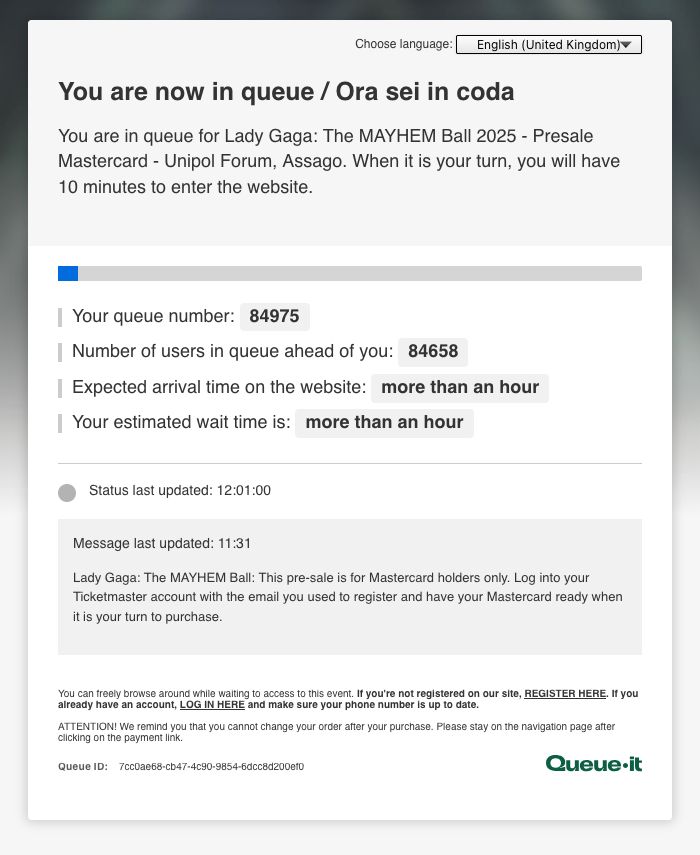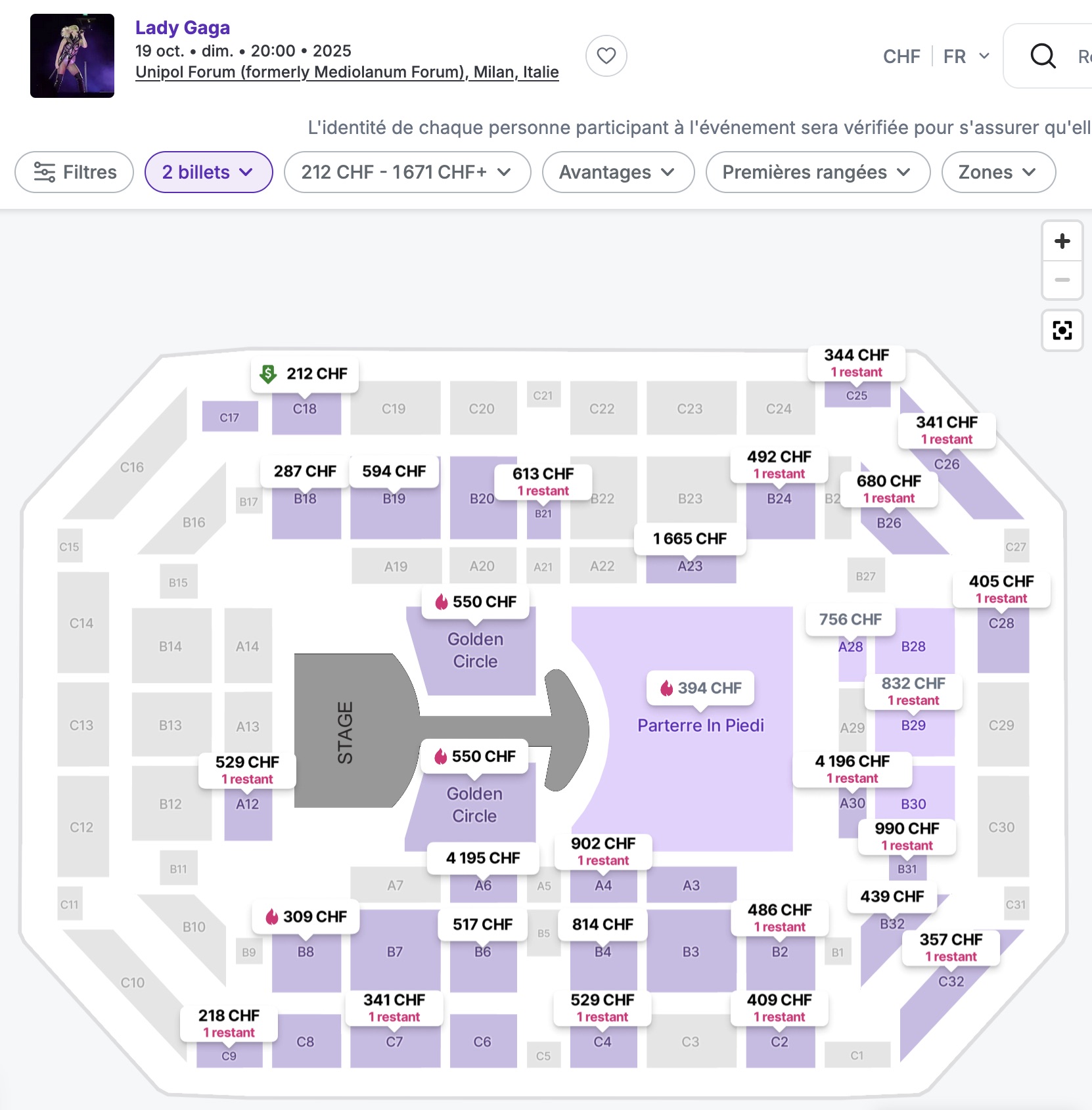If you’re not interested in buying music in a physical form you may well have missed that last Saturday (12th April 2025) was “Record Store Day” (RSD)1. A biannual event where independent record stores are supplied with releases exclusively available through them. The aim is to get the buying public offline and through the doors of the independent stores, out of the Walmarts, Fnacs, HMVs (is that still a thing?), and so on. Boosting the trade for the independents is a good thing.
The exclusive releases are pressed in limited numbers, depending on the expected demand and popularity of the artists, ranging from a few hundred copies to a few thousand. There are some outliers in terms of numbers.
One such outlier a couple of years ago was a release of Taylor Swift material, a sessions version of recent album that was only previously available digitally. The RSD physical version2 was a print run of 115,000 copies, with 75,000 for the US and 40,000 for the rest of the world. And, yes, people were losing their shit over it for various reasons.
My wife was lucky enough to purchase the release, as she likes the music. The cost was about 60.- CHF, which is about 50% more than normal albums cost here but about average for exclusive RSD releases. Some releases are sought after and their limited supply means they create a secondhand market.

The inevitable consequence of all this is that private sellers will buy the exclusive releases and immediately list them for sale online. While the independent stores are not allowed to sell them online until the day after RSD, private sellers are not constrained by this. And, as part of the contract with the organisers of RSD, the independent stores are not allowed to sell them at a higher price than the MSRP (Manufacturer’s Suggested Retail Price). So of course people try to profit from it, quickly, and copies of RSD releases appear online usually within an hour or two of the opening of the physical stores.
The Swift release made its way online at a significantly higher price than in store and two years later the release is selling, on the secondhand market, for an average of 200.- CHF. At the peak it was selling for almost 300.- CHF. Five times its MSRP. This caused a range of responses from “meh, whatever” through to absolute outrage.
FOMO
This year’s RSD didn’t really have anything that appealed to us. My interest is purely: do I like the music enough to buy it, and do I not have it already? The “RSD” link is tangential for me, and as time goes on the RSD exclusives are trending towards scraping the bottoms of many a musical barrel anyway with things like poorly recorded obscure live shows, boring remixes, overpriced 7” and 12” singles, studio outtakes and alternate versions, reissues of back catalog releases, picture disks and coloured variants, and so on.
The most compelling release this year for me, and that’s stretching it somewhat, was a reissue of an Oasis compilation; one that had been unavailable for some time, and that had become quite expensive to purchase secondhand. I say “compelling” because it would allow me to get the better bits of Oasis’ mediocre latter back catalog without having to purchase any albums after their second. Compilations can sometimes be good for something.
I assumed the RSD release must have sold out quickly given it was listed on Discogs for 50% more than its MSRP a couple of days after the event. We couldn’t make it to a store last week because we were away, however having visited my local store this morning I found it available. I ended up picking up a couple of Yes releases as well, from the previous year’s RSD. In fact, my local store has hundreds, if not thousands, of releases from many previous RSD events.
Fear of missing out (FOMO) can really drive up the prices of many releases. In reality I think most releases are printed in sufficient numbers to satisfy demand, but “flippers” (record speak for scalpers) will try to quickly buy and resell these releases to make a profit, capitalising on FOMO. Indeed, I thought about purchasing the Oasis release “secondhand” online, but figured I would check my local store first.
Ticketmaster… bation?
The one thing that has been driving me up the wall recently is the ticket resale market, actual scalpers, and the apparent lack of action by those who could do something to kill it off for good.
Ticket resales in France are strictly regulated to prevent speculation in the secondhand market3; ditto Italy which also includes rules about the named ticket holder and id requirements to verify that4 but, in our experience, these are not checked on the doors. There is regulation, but enforcement is rare or toothless.
As if to demonstrate, take this screenshot from my wife trying to get tickets for Lady Gaga in Milan this October:

We were in the queue for a few hours, safe in the knowledge that we were not going to get any tickets given the venue capacity was about one sixth of the number of botspeople in the queue ahead of us. So I entertained myself by looking at the secondhand resale sites at the same time to see what was going on there. Sure enough, plenty of tickets available for the same event that had just opened up its presale. Many of which were listed at two, three, four, even ten times the face value.
There are plenty of tickets still available on those secondhand sites right now. Here’s a screenshot for when that link is no longer functioning:

So I’m going to have to watch those sales in the hope that we can grab two at roughly face value. That will probably happen eventually, as the scalpers get increasingly desperate to sell off their tickets before they are worthless (i.e. after the event). Of course, being a software engineer means I have automated that process.
A bot to find secondhand tickets from scalpers who likely used a bot to buy them originally.
Wankers.